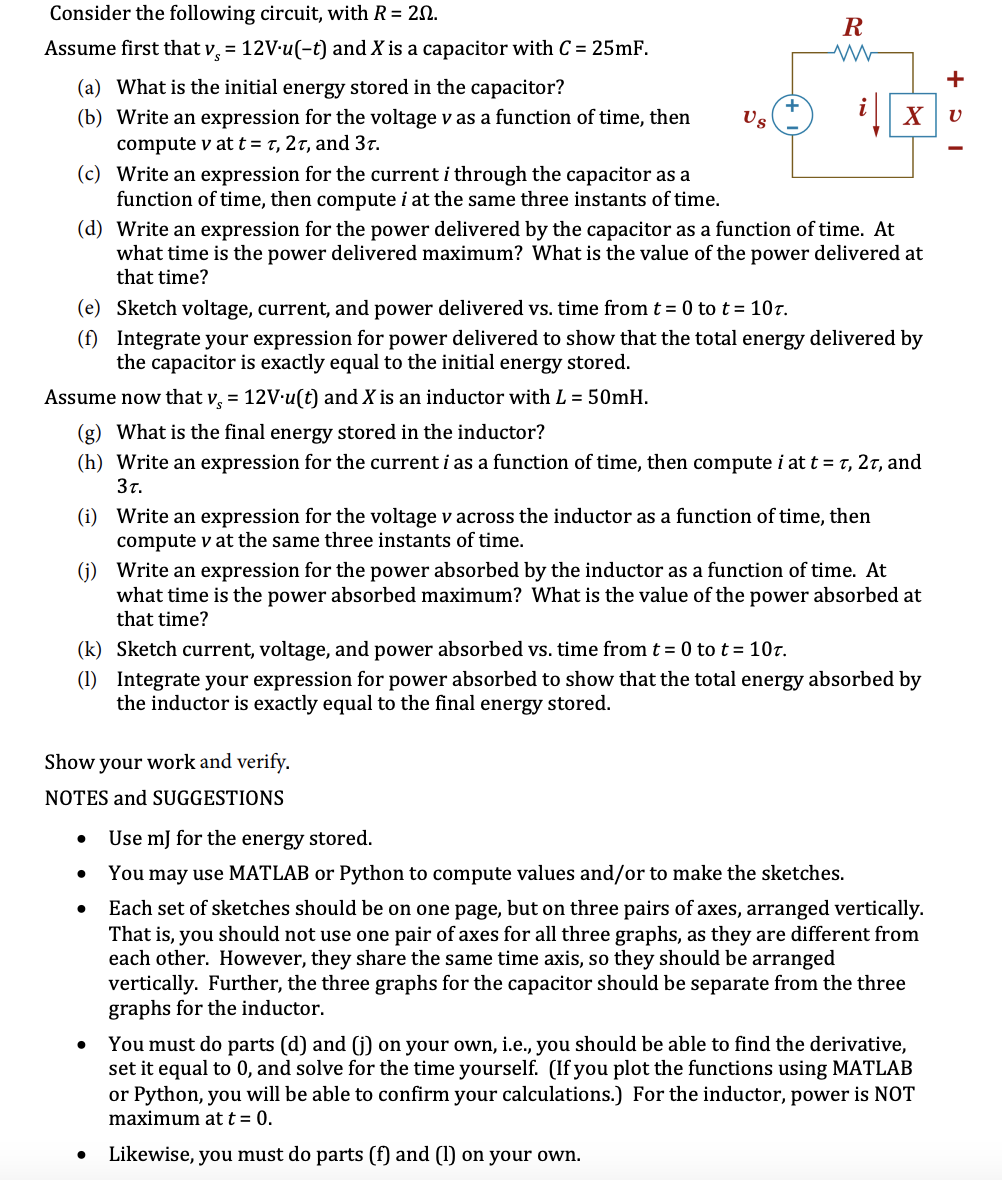Consider the following circuit, with R = 20. R Assume first that v, = 12V-u(-t) and X is a capacitor with C = 25mF. + (a) What is the initial energy stored in the capacitor? i x (b) Write an expression for the voltage v as a function of time, then Us compute v at t = t, 2t, and 3t. (c) Write an expression for the current i through the capacitor as a function of time, then compute i at the same three instants of time. (a) Writo an ovpreccion for the nower delivored by the ganacitor as a furnction oftime A+
Hello, a step by step guide would be greatly appreciated. Only for the first set of questions A-F. Please follow the NOTES & SUGGESTIONS at the bottom when solving, answering what is asked as I need to make sure of fully understanding, thanks so much :)

Given :
In the above given question they have mentioned an electrical circuit having independent voltage source, resistor and capacitors which are connected in series.
Here they are interested in the calculation of of current and voltage in the capacitor.
According to the the given excitation we need to perform the transient analysis in the circuit.
Here we should analyse the transient and steady state analysis of a capacitor for the calculation of current time voltage across it.
Vc(t) & Ic(t) instantaneous voltage and currents in the capacitor.
Trending now
This is a popular solution!
Step by step
Solved in 5 steps with 4 images









